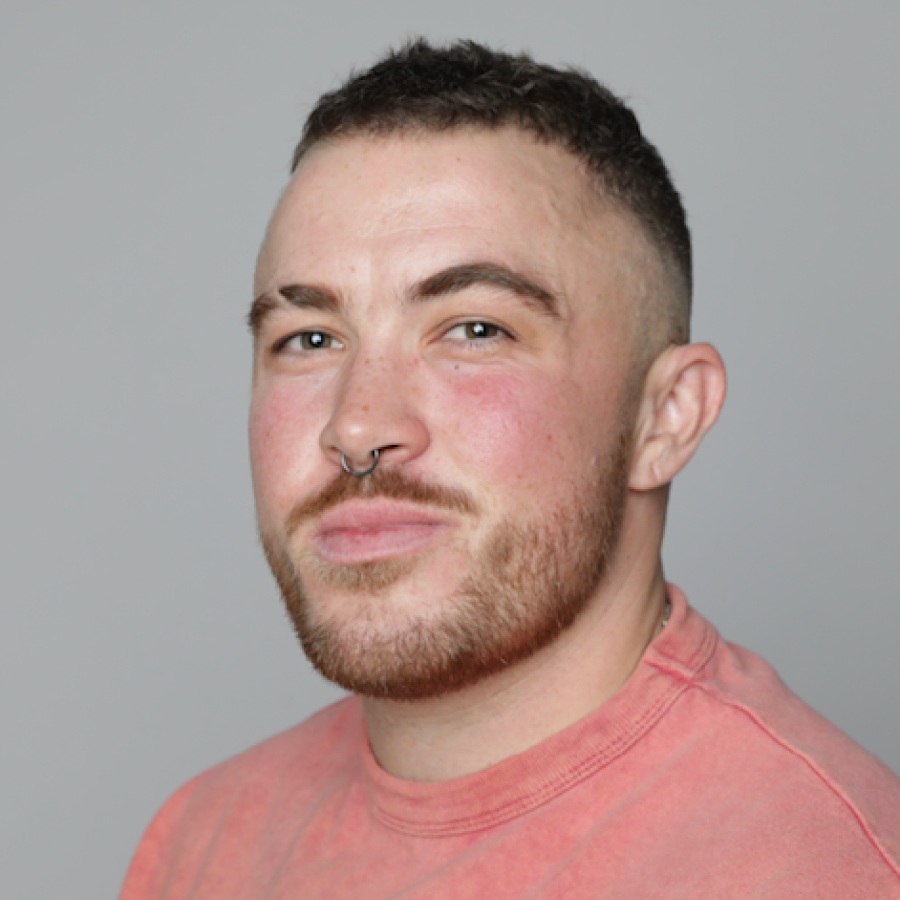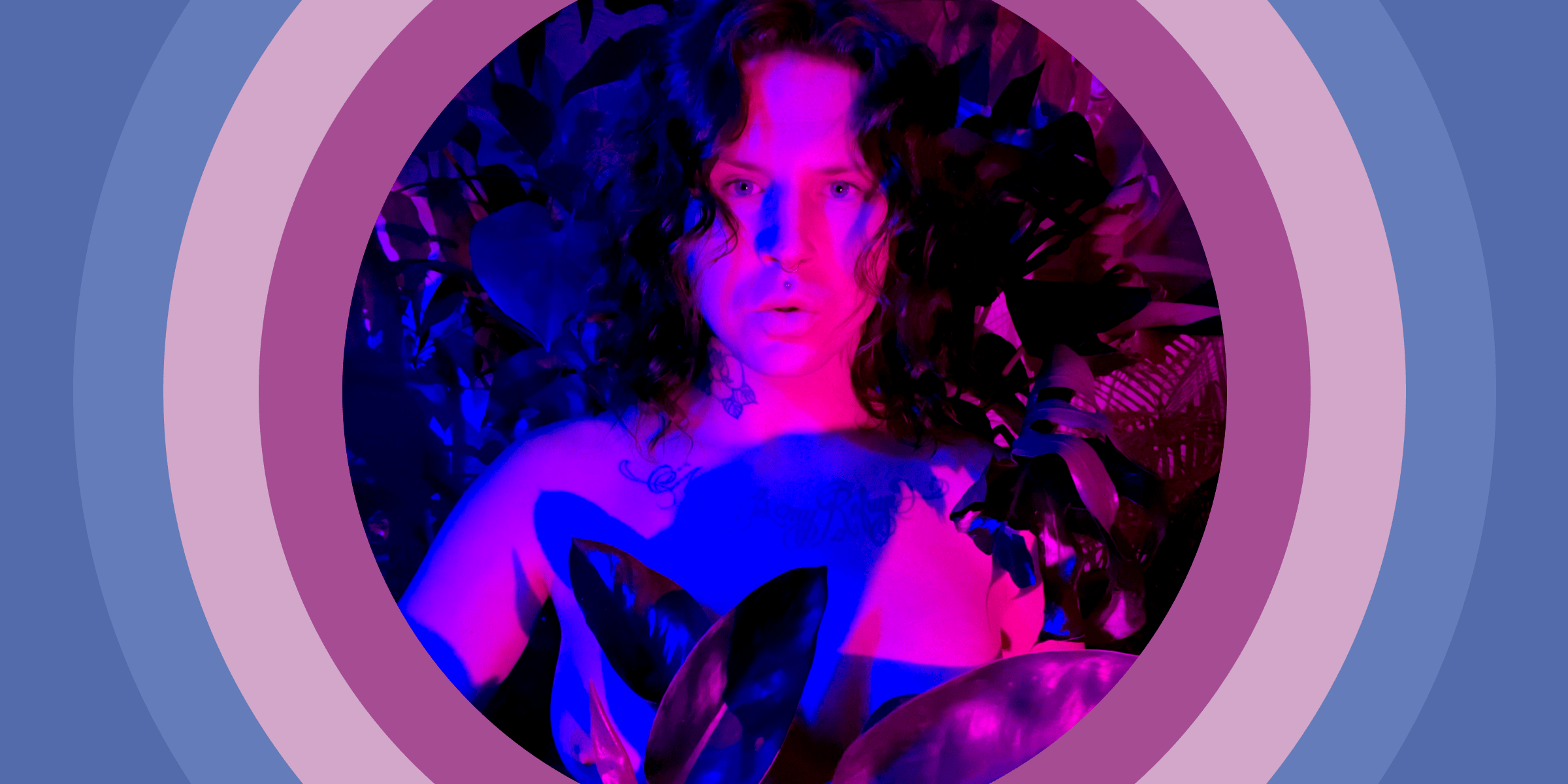Photography by FOLX, Design by Emma Günther
Living with HIV
FOLX Health and Clue chat to two people who are HIV+

There are about 37 million people living with the human immunodeficiency virus (HIV) around the world. More than half of them are cisgender women and trans people (1). Studies have shown that HIV continues to spread because of social stigma; people are hesitant to get tested because of fear of how others may treat them (2). Social stigma can be broken down by having honest, open conversations about the reality of living with HIV (3) - many people who have access to treatment and support live long, healthy lives. That’s why we teamed up with Mud from FOLX Health, an online healthcare platform for LGBTQ+ people, and spoke to two people living with HIV—Cecilia Chung, a civil rights leader, and Atlas Marshall, a nightlife producer. During the interviews, they told us about their experiences living with HIV, their journey to diagnosis, relationships, and the importance of fighting stigma.
The following excerpts have been taken from interviews with Cecilia and Atlas that capture their individual experiences living with HIV. The Clue Science Team has fact-checked all science-based statements.
“HIV is no longer a death sentence”
A conversation with Cecilia Chung
Cecilia Chung is the Senior Director of Strategic Initiatives and Evaluation at Transgender Law Center, a Health Commissioner of San Francisco, and an internationally recognized civil rights leader in the LGBT and HIV community. Cecilia has served as the Co-Chair of GNP+. In 2015, Cecilia founded Positively Trans, a network of transgender people living with HIV. She is currently a member of the WHO Advisory Council of Women Living with HIV.
Mud from FOLX: Tell us about yourself. What’s your story?
Cecilia: I’m currently the Director of Evaluation and Strategic Initiatives at Transgender Law Center. I got involved with this work primarily because I transitioned and found out I was HIV positive, that was back before there were medications. The majority of my advocacy is really just fighting for my own life.
Mud: How can HIV be treated so that people can live full and healthy lives?
Cecilia: Number one is HIV is not that easy to get, let’s say in comparison to COVID-19. COVID is airborne and HIV is bloodborne. We often don’t think about how public policy influences our health. With the U=U campaign, it’s about viral load suppression. Science has proven that if a person living with HIV has a suppressed viral load, the chance of them transmitting HIV to someone else becomes very low. HIV is no longer a death sentence, but black and brown gay men living with HIV are still criminalized, [and] we need our laws to catch up to our science.
Mud: What kind of support is there for people living with HIV and what resources are missing?
Cecilia: When you look at the structural factors of racism, immigration status, and transphobia, you start to see the way it impacts the community. And you see the difference between those who are and are not getting adequate care. It’s not just about putting a clinic in the middle of a city and assuming that everybody can go to that clinic. Because that clinic might be racist or homophobic or only speak English. It's not just a matter of how great a provider you are. Will people even feel comfortable walking through the door?
And trans men have not been adequately addressed in any of the policies. When you look at the number of people with HIV, the rate of increase between 2013 and 2019 for trans men with HIV was up 500%.
Mud: Why do you think gay cis men are the primary face of HIV?
Cecilia: Well at the start of the AIDS epidemic, HIV was called “gay cancer” or “Gay-related immunodeficiency syndrome.” Everything was about cis gay men. And we saw folks who didn’t think they were at risk of [getting] HIV because they weren’t gay. But now cis women, trans women, women of color, and immigrants have poorer health outcomes than gay men in general.
Congress is not putting new money into the HIV care system for culturally competent services. Cis gay men have higher rates of viral suppression, so we need to focus on where the gaps are. And unfortunately, we still have a way to go.

“There are so many of us out in the world who are not cis gay men who are living with HIV”
A conversation with Atlas Marshall
Atlas Marshall is a trans femme and works as a nightlife producer. They are comfortably thriving while remaining undetectable. They are a huge advocate of self-love and expression. You can follow them on Instagram @partyxmonster.
Mud: Tell us a bit about yourself. How does HIV fit into your narrative, or does it?
Atlas: My name is Atlas Marshall, I’m 32 years old, and I live in Portland, Oregon. I'm in a monogamous relationship with another trans person, and he is on PrEP. So when we got together, we had that conversation where I was like, “I'm undetectable. You're on PreP. Let’s go crazy!” But before I was undetectable, back when I was more promiscuous, the fact that I was [HIV] positive was a bigger piece of my identity because it was something that had to be talked about.
But it’s not like I hide it now. I mean I'm not running around with a giant sign that says “I HAVE HIV,” but it's also not a thing that I have shame about.
Mud: That leads me to the next question, what were some of your fears about getting or living with HIV that turned out to be wrong?
Atlas: All the fears that I had were completely irrational from the moment I had them. My mom is a lesbian, and even though she was never around when I was growing up, all of her friends were gay, so some of them died from AIDS in the early 90s.
So the moment that I was tested positive, I was like, “Oh my god, I'm gonna die.” And then I was like, “Oh my god, I'm gonna give it to somebody else.” The fear of losing the longevity of life was the most stressful. But I mean, I’m slaying it. I’m slaying life.
Mud: Do you feel being HIV positive has impacted your dating life or relationships?
Atlas: You know, honestly? No. Which is actually a really beautiful thing. Thank god for the recent pushes in education. So many people know more about HIV than they used to, like the U=U (Undetectable=Untransmittable) campaign that is happening.
It’s been scientifically proven that if you are undetectable, you are not really able to transmit it to other people. I don't think that a lot of people knew that for a long time. But now if someone is on meds and they are taking care of themselves, you have less of a chance of getting HIV from them. So my dating life was never really impacted by it, at least not as much as I thought it would be.
Mud: Do you feel like living with HIV has changed your life?
Atlas: I'm a very emotional person and I know the history. So now I live with something that has killed so many people like me, and I carry the weight of that with me. But on a day-to-day basis, not much has changed. I take one little pill and I’m good to go!
Mud: What is something that you wish people knew about HIV that you feel like they don't?
Atlas: I guess the biggest thing is that you can’t get HIV by having sex with someone who is undetectable. Also, because of what happened in the 80s, people still think that if you get HIV you are going to die of AIDS. These days, HIV is manageable and you can live a long and healthy life. That’s what I want people to know and remember a lot of the stigma is systemic and historic, and it derives specifically from the propaganda that was used against queer men in the 80s.
Talking about HIV reduces stigma
With the right support and healthcare, HIV-positive people can live long and healthy lives, both for themselves and their partners. Atlas told us that being HIV-positive has not impacted their dating life, “I'm happy. I'm healthy. And I have happy, healthy relationships with other people.” Not everyone can be open about their HIV status, but for those who can, open conversations about living with HIV reduces stigma and makes life a bit easier (3).
If you are someone who is HIV-negative, and at risk of getting HIV, you can take a medication called PrEP to reduce risk of infection. Find out more about how you can access PrEP on FOLX Health.
